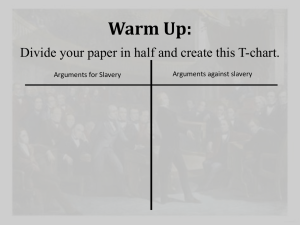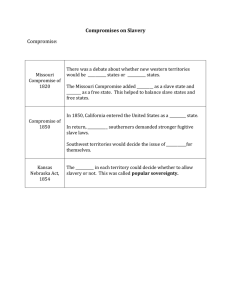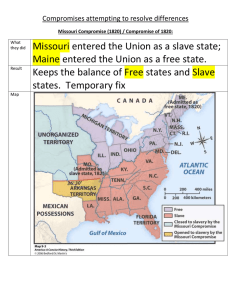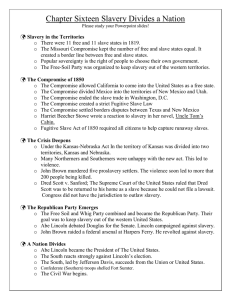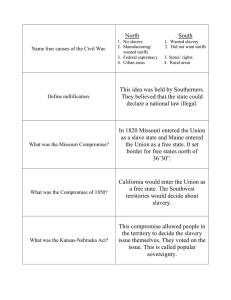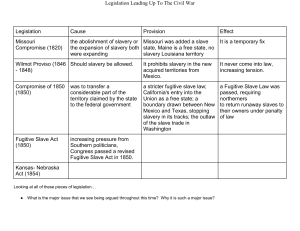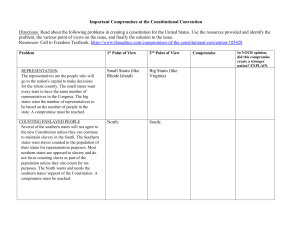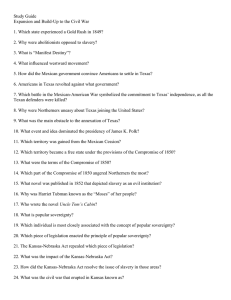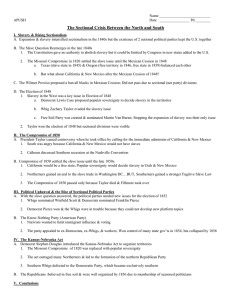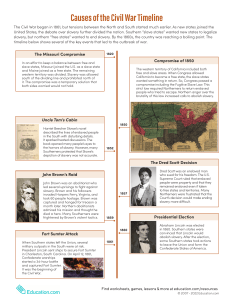Compromise of 1850
advertisement
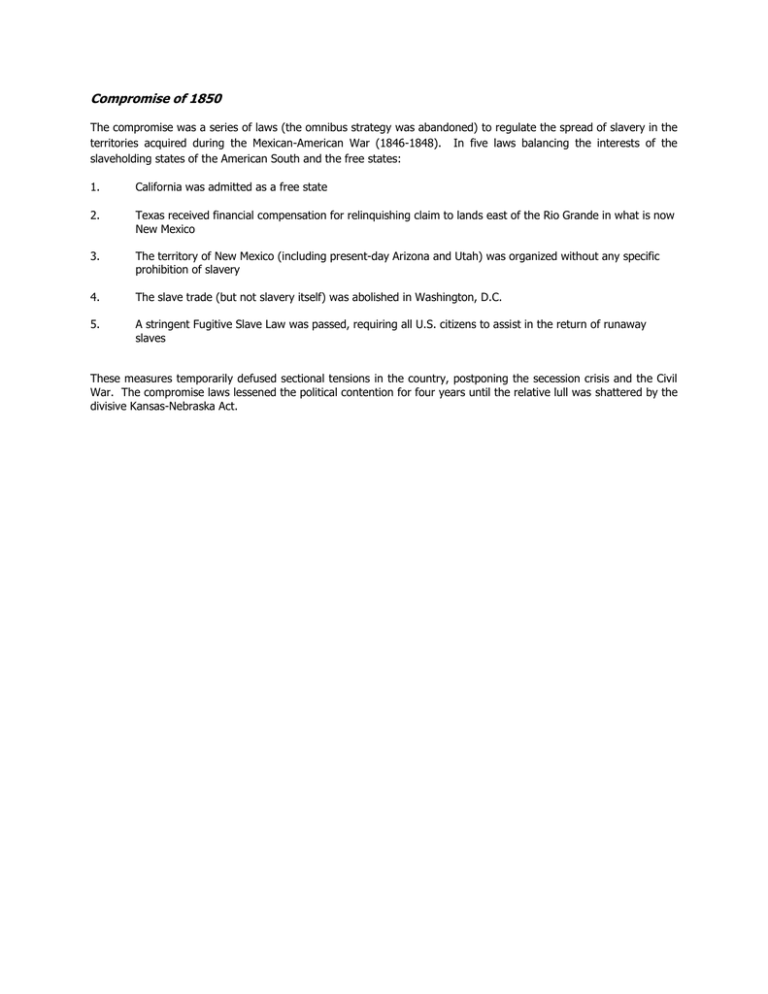
Compromise of 1850 The compromise was a series of laws (the omnibus strategy was abandoned) to regulate the spread of slavery in the territories acquired during the Mexican-American War (1846-1848). In five laws balancing the interests of the slaveholding states of the American South and the free states: 1. California was admitted as a free state 2. Texas received financial compensation for relinquishing claim to lands east of the Rio Grande in what is now New Mexico 3. The territory of New Mexico (including present-day Arizona and Utah) was organized without any specific prohibition of slavery 4. The slave trade (but not slavery itself) was abolished in Washington, D.C. 5. A stringent Fugitive Slave Law was passed, requiring all U.S. citizens to assist in the return of runaway slaves These measures temporarily defused sectional tensions in the country, postponing the secession crisis and the Civil War. The compromise laws lessened the political contention for four years until the relative lull was shattered by the divisive Kansas-Nebraska Act.
